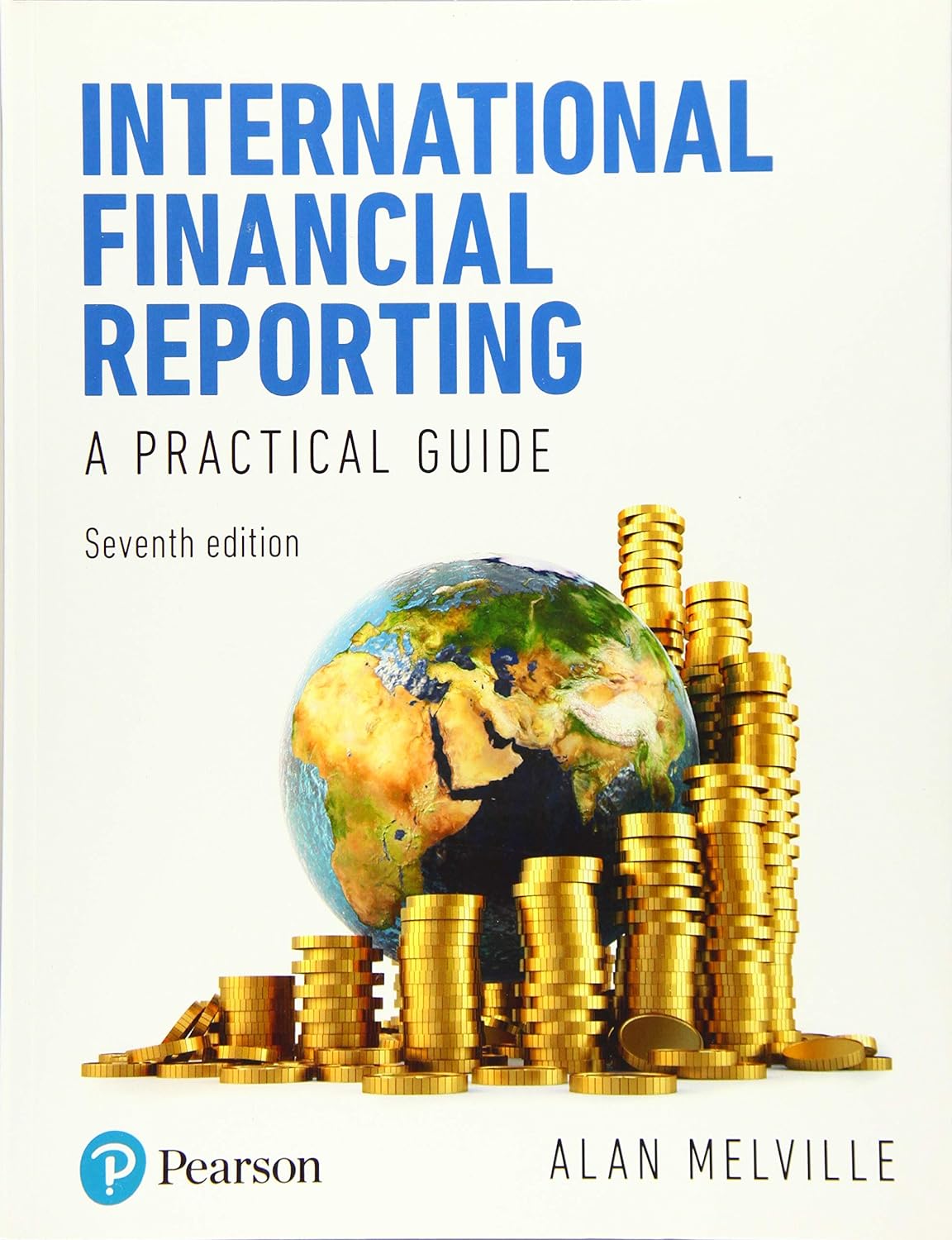
LEARNING OUTCOMES
This course provides overview of most significant international financial reporting standards (IFRSs) and includes illustrative financial statements, case studies and examples. Additionally, the students will learn to know the challenges that enterprises and auditors are facing in applying IFRS, including sustainability-related reporting.
Credits: 6
Schedule: 15.01.2024 - 19.02.2024
Teacher in charge (valid for whole curriculum period):
Teacher in charge (applies in this implementation): Hannu Ojala, Marwaha
Contact information for the course (applies in this implementation):
Ankita.Marwaha@aalto.fi
CEFR level (valid for whole curriculum period):
Language of instruction and studies (applies in this implementation):
Teaching language: English. Languages of study attainment: English
CONTENT, ASSESSMENT AND WORKLOAD
Content
valid for whole curriculum period:
To work as company controller and be able to contribute to the preparation of financial statements according to international accounting standards. To work as an auditor and being able to audit IFRS financial statements. To work as a financial analyst and being able to analyze IFRS-prepared financial statements.
applies in this implementation
During the lectures, we will discuss and practice the application of main international financial reporting standards. Note that you can study international financial reporting standards (IFRS) also individually using lecture materials, exercises covered during lectures, and IFRS materials available online. A wealth of material on IFRS (or IAS) standards exists on platforms like YouTube.
It is crucial to attend the first lecture on 15th January 2024. This is when practical details related to the course will be discussed. However, all participants must follow the MyCourses area for the entire course duration, as changes during the course are possible (and perhaps likely). If you cannot attend, contact another student, and ensure you are current on everything agreed upon during the first lecture.
Attendance at lectures is not compulsory, but achieving a high grade without attending lectures is challenging. This is due, in part, to the fact that online assignments (approximately eight in total) affecting the course grade are practised during lectures. Therefore, attending lectures significantly facilitates the completion of online assignments.
Examination details:
The exam will be held online and can be accessed on MyCourses on 19.02 between 09:00 and 12:00. Please check for the link under the heading “Exam.”
During the exam, you shall follow the academic ethical code. Well-grounded suspicions of cheating (including messaging with others during the exam and using text written by others) will lead to a rejection of the exam.
Computer programs such as spreadsheets (e.g. excel) and any course material are allowed during the exam. However, searching material from the internet during the exam, using artificial intelligence services, copying materials of others, or discussing with others (or using any messaging application) are not allowed.
Assessment Methods and Criteria
valid for whole curriculum period:
Grounds for evaluation: examination, team assigments and individual assignments
Weight of the exam on the course is max 60%
applies in this implementation
Online assignments must be submitted before the start of the next lecture to receive credit. The online assignments help to prepare for the exam. The assignments use “wild cards”: the numbers (and the correct solution) will differ for each student. Furthermore, the numbers will change whenever retaking the assignment (that is possible until the assignment is due). Additional points affecting the course grade can be earned through active participation in lectures and potential additional tasks associated with the lectures.
A mandatory requirement of the course is submitting a video recorded term paper by each student by 12th February at 10:00 AM. During the final lecture will discuss some term papers (14th February). The course textbook is 'International Financial Reporting, A Practical Guide, 2019, Alan Melville, Pearson (earlier editions are useful, if you do not have an access to the latest edition).
The grade is determined as follows: the term paper (including a video presentation) contributes 45%, the exam is 45%, and weekly assignments are 10%. A satisfactory completion of 50% is required for online assignments. A satisfactory grade (40% of maximum points) from both term paper and exam is a required for passing the course.
Workload
valid for whole curriculum period:
- Lectures
- Independent studying
- Term paper & other assignments
- Exam
- Lectures
DETAILS
Study Material
applies in this implementation
The course textbook is 'International Financial Reporting, A Practical Guide, 2019, Alan Melville, Pearson (earlier editions are useful, if you do not have an access to the latest edition).
During the lectures, we will discuss and practice the application of main international financial reporting standards. Note that you can study international financial reporting standards (IFRS) also individually using lecture materials, exercises covered during lectures, and IFRS materials available online. A wealth of material on IFRS (or IAS) standards exists on platforms like YouTube.
Substitutes for Courses
valid for whole curriculum period:
Prerequisites
valid for whole curriculum period:
SDG: Sustainable Development Goals
8 Decent Work and Economic Growth
FURTHER INFORMATION
Further Information
valid for whole curriculum period:
Attendance to the first lecture is mandatory.
Teaching Language : English
Teaching Period : 2022-2023 Spring III
2023-2024 Spring IIIEnrollment :
Registration for courses: in Sisu.
If more students have enrolled by the enrolment deadline than can be accepted on the course, priority will be given to students based on their study right: 1. Master's degree students in Accounting 2. Exchange students, CEMS students 3. Bachelor's students in Accounting who have completed more than 150 cr 4. Master's students in other majors 5. Bachelor's students in other majors who have completed more than 150 crapplies in this implementation
Note that, if you cannot attend any lecture and wish to clarify topics covered, you must contact another student attending the lecture. The instructors in charge of the course cannot retroactively fill knowledge gaps resulting from non-attendance. However, in case of other queries, please contact Ankita.Marwaha@aalto.fi.
